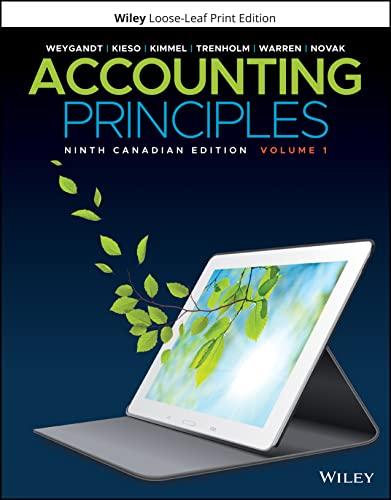Question
1. What would be the impact on a restaurants financial accounts when it purchases steaks for resale to guests? A. Decrease in cash, increase in
1. What would be the impact on a restaurants financial accounts when it purchases steaks for resale to guests? A. Decrease in cash, increase in inventory value B. Decrease in cash, decrease in inventory value C. Increase in cash, increase in inventory value D. Increase in cash, decrease in inventory value
2. In the hospitality business cycle, the sale to guests of a hospitality businesss products or services creates either cash or A. a financial profit. B. an account payable. C. an account receivable. D. a credit to a deprecation account.
3. As the first step in the hospitality business cycle, a hospitality operation uses its cash or credit reserves to A. purchase products for resale to guests. B. produce finished goods. C. generate accounts receivable. D. create profits.
4. Which GAAP would be most relevant if a hotel, in the near future, expected to face the payment of a significant amount of money resulting from a lawsuit that it was very likely to lose? A. Objectivity Principle B. Conservatism Principle C. Consistency Principle D. Full Disclosure Principle
5. Which GAAP applies only to those businesses that use an accrual system of accounting? A. Matching Principle B. Conservatism Principle C. Consistency Principle D. Objectivity Principle
6. Which GAAP prevents a business from switching back and forth between an accrual and a cash accounting system in the same accounting period? A. Consistency Principle B. Conservatism Principle C. Matching Principle D. Objectivity Principle
7. Which GAAP states that recorded financial transactions must have a confirmable (provable) basis in fact? A. Matching Principle B. Conservatism Principle C. Objectivity Principle D. Consistency Principle
8. A restaurant owner records his purchases of food and beverage as an expense when they are purchased, and who does not record end of accounting period inventory values is violating the A. Matching Principle. B. Materiality Principle. C. Objectivity Principle. D. Full Disclosure Principle.
9. A restaurant owner who takes home steaks for grilling at a private party she is hosting for her friends, without properly reflecting this in the restaurants accounting records, is violating the A. Distinct Business Entity Principle. B. Cost Principle. C. Matching Principle. D. Full Disclosure Principle.
10. Which portion of a hospitality businesss transaction and analysis process would most often by undertaken by the businesss owner or general manager? A. Financial analysis B. Recording of guest purchases C. Summary accounting D. Basic bookkeeping
Step by Step Solution
There are 3 Steps involved in it
Step: 1

Get Instant Access to Expert-Tailored Solutions
See step-by-step solutions with expert insights and AI powered tools for academic success
Step: 2

Step: 3

Ace Your Homework with AI
Get the answers you need in no time with our AI-driven, step-by-step assistance
Get Started


